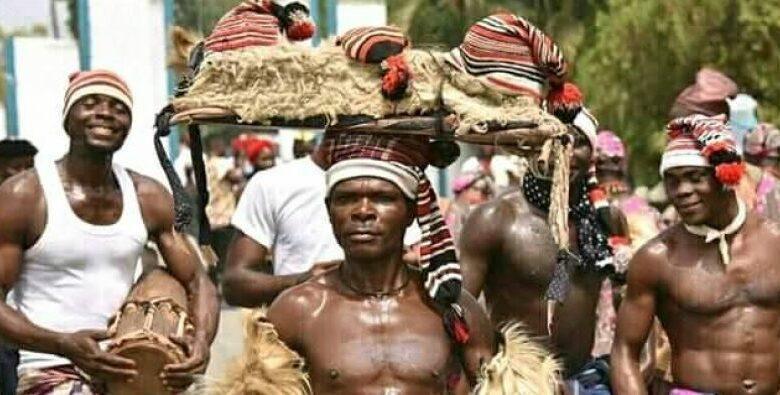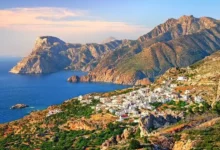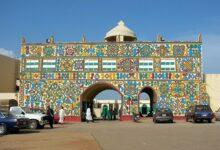
15 Facts About Igbo Culture
The Igbo people, also known as the Ibo, are one of the largest ethnic groups in Nigeria, with a rich and vibrant culture that spans centuries. From their language to their traditional practices, Igbo culture is diverse and captivating. Here are 15 intriguing facts about Igbo culture.InformationGuideNigeria
Read Also: The Roles of Culture in National Development in Nigeria
👉 Relocate to Canada Today!
Live, Study and Work in Canada. No Payment is Required! Hurry Now click here to Apply >> Immigrate to Canada15 Facts About Igbo Culture
1.Language:
The Igbo language, also called ‘Asụsụ Igbo,’ is a tonal language with numerous dialects. It is widely spoken by millions of Igbo people in Nigeria and around the world. The Igbo language has its own unique alphabet, known as the Nsibidi script.15 Facts About Igbo Culture
2. Ancestral Origins:
According to Igbo mythology, the Igbo people originated from a divine being named Eri. It is believed that Eri migrated from an area called Aguleri, in present-day Anambra State, and his descendants spread across the Igbo territory.
3. Igbo-Ukwu Art:
Igbo-Ukwu, an ancient town in southeastern Nigeria, is renowned for its exquisite bronze artifacts. These artifacts, dating back to the 9th century, demonstrate the artistic prowess of the Igbo people and their advanced civilization.10 reasons why doctors are more important than teachers
4. Traditional Attire:
Igbo traditional attire varies among subgroups, but one common feature is the ‘Isiagu’ fabric. Isiagu is a pullover shirt with a distinctive pattern, often worn on special occasions and ceremonies. The Igbo also wear the ‘George’ wrapper, coral beads, and other accessories to complement their attire.
Read Also: 10 Influence of Western Culture in Nigeria
5. Masquerades:
Igbo masquerades play a significant role in Igbo culture. These masked performers, known as ‘Mmanwu,’ are believed to embody ancestral spirits and deities. They perform at festivals, funerals, and other cultural events, adding a touch of mystique and spirituality to the occasion.15 Best App to Borrow Money in Nigeria
6. Nri Kingdom:
The Nri Kingdom, located in present-day Anambra State, was a prominent political and religious center in Igbo history. It is known for its sacred institutions, such as the ‘Ofo’ (a symbol of authority) and the ‘Ichi’ facial marks, which signified noble status.
7. New Yam Festival:
The New Yam Festival, known as ‘Iwa Ji’ or ‘Iri Ji,’ is a prominent celebration in Igbo culture. It is held annually to mark the beginning of the yam harvest season. The festival involves cultural performances, feasting, and prayers for a bountiful harvest.JAMB Portal
👉 Relocate to Canada Today!
Live, Study and Work in Canada. No Payment is Required! Hurry Now click here to Apply >> Immigrate to Canada8. Traditional Cuisine:
Igbo cuisine is known for its diversity and delicious flavors. Staple foods include yam, cassava, plantain, and cocoyam. Popular Igbo dishes include Ofe Nsala (white soup), Nkwobi (spicy cow foot), and Oha Soup (made from Oha leaves).
9. Marriage Traditions:
Igbo marriage ceremonies are elaborate and involve several traditional customs. These customs include the ‘Iku Aka’ (knocking on the door), ‘Igba Nkwu’ (traditional wedding ceremony), and the ‘Igba Nkwu Nwanyi’ (bride’s presentation).
Read Also: 12 Influence of Culture on Education in Nigeria
10. Igbo Names:
Igbo names often have significant meanings and are given based on various circumstances. Names may reflect the day of the week a child is born, events surrounding the child’s birth, or desired attributes for the child’s future.NYSC Portal
11. Igbo Chieftaincy System:
The Igbo chieftaincy system is a hierarchical structure that recognizes the authority and leadership of titled chiefs. These chiefs, known as ‘Ndi Nze,’ are responsible for the governance and administration of their communities.
12. Music and Dance:
Igbo music and dance are vibrant expressions of the culture. Traditional musical instruments like the ‘Ogene’ (metal gong), ‘Ekwe’ (wooden slit drum), ‘Udu’ (clay pot drum), and ‘Ichaka’ (shaker) are commonly used. Igbo music genres like Highlife, Igbo gospel, and traditional folk songs showcase the rhythmic and melodic talents of the Igbo people.200 Romantic Love Message
Read Also: 10 Influence of Climate on Fishing and Aquaculture in Nigeria
13. Igbo Traditional Religion:
Before the introduction of Christianity and Islam, the Igbo practiced traditional religion, which centered around the worship of various deities and spirits. Chukwu (the Supreme God) and Ala (the Earth Goddess) are among the central figures in Igbo cosmology.
14. Igbo Literature and Proverbs:
Igbo culture has a rich tradition of oral literature, storytelling, and proverbs. Proverbs, known as “Ogbo,” are used to convey wisdom, moral lessons, and cultural values. They are often passed down from generation to generation and serve as a guide for daily living.105 Good Morning Love Messages
15. Entrepreneurial Spirit:
The Igbo people are known for their entrepreneurial spirit and business acumen. They have a long history of engaging in trade and commerce, both locally and internationally. Igbo traders, often referred to as “Ndịnọ,” have a reputation for their success in various industries and markets.
Read Also: 10 Factors Affecting Commercial Agriculture in Nigeria
The Igbo culture is a treasure trove of traditions, customs, and artistic expressions. From their language to their music, dance, and cuisine, the Igbo people have a rich heritage that continues to thrive in modern times. By celebrating and preserving these aspects of their culture, the Igbo people ensure that their traditions are passed down to future generations, fostering a sense of identity, pride, and unity.
Check JAMB Result
Check and Confirm: How much is Dollar to Naira





